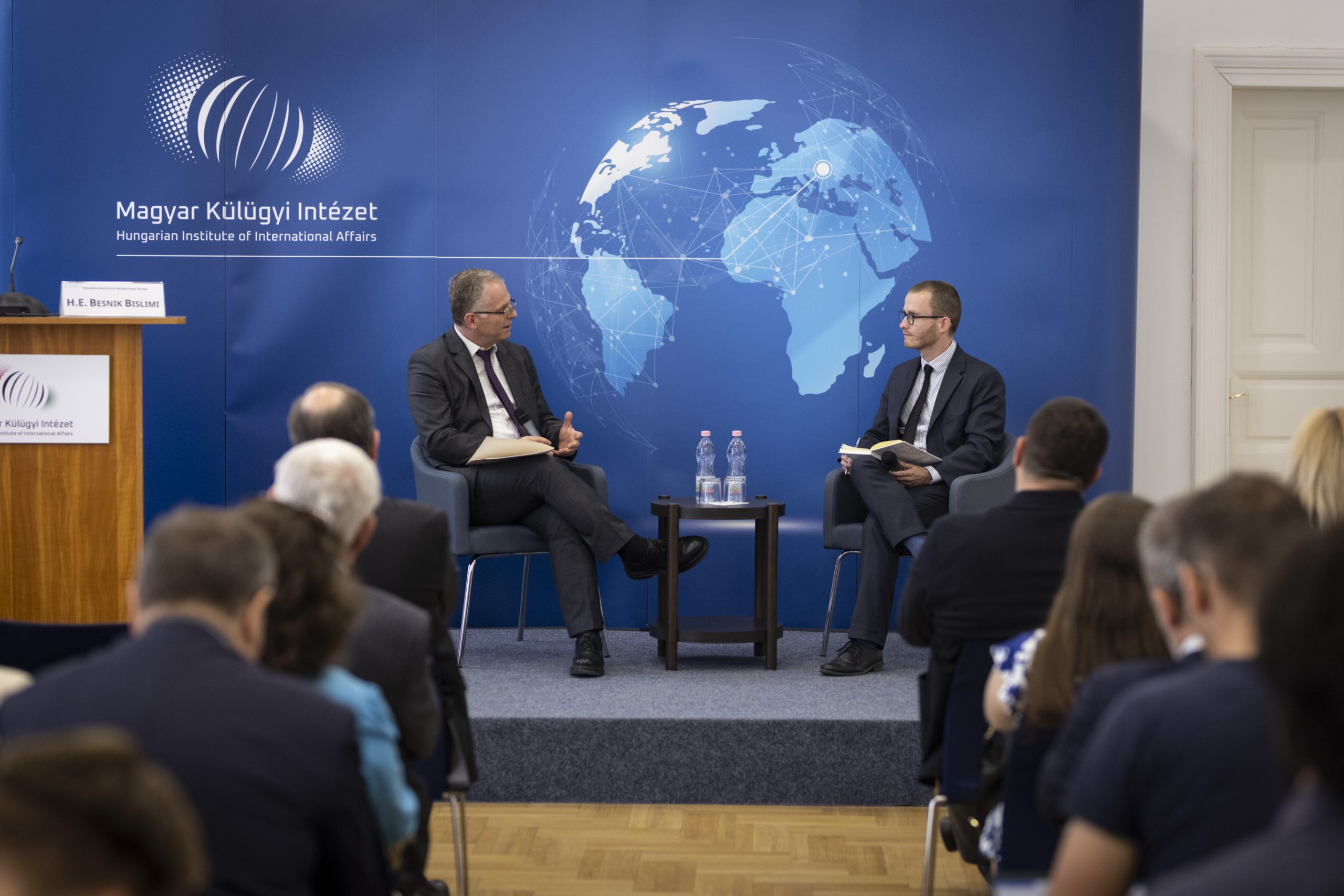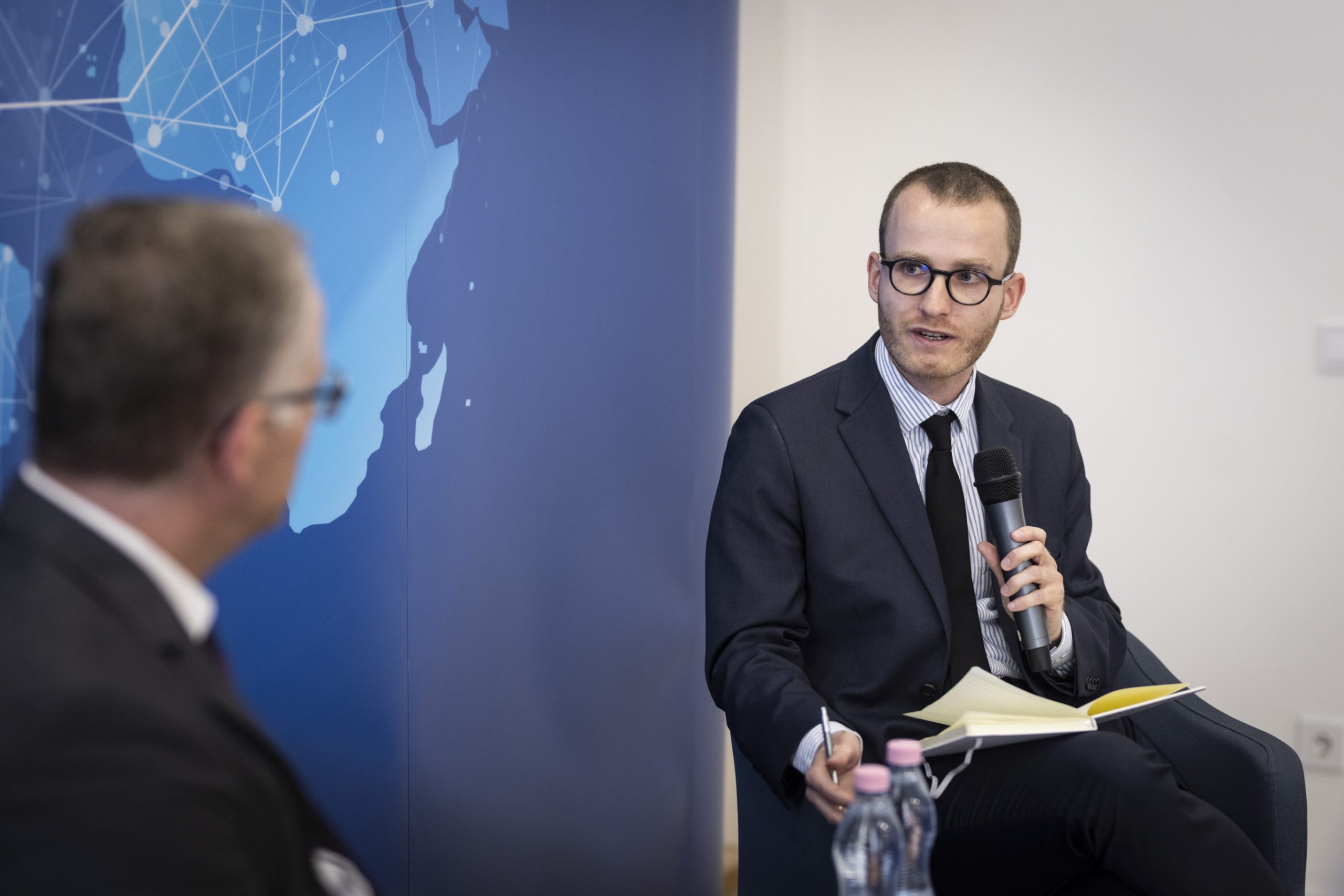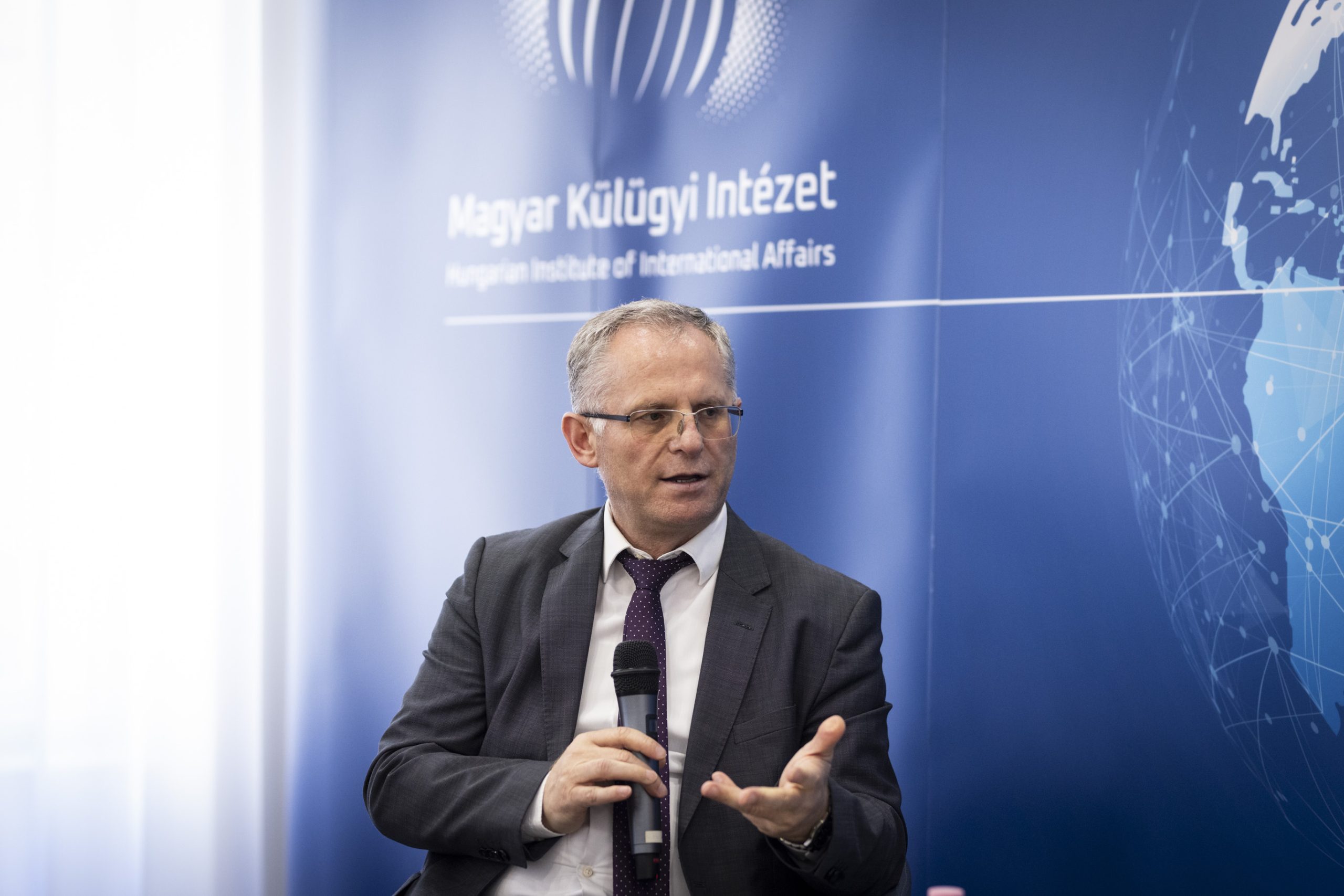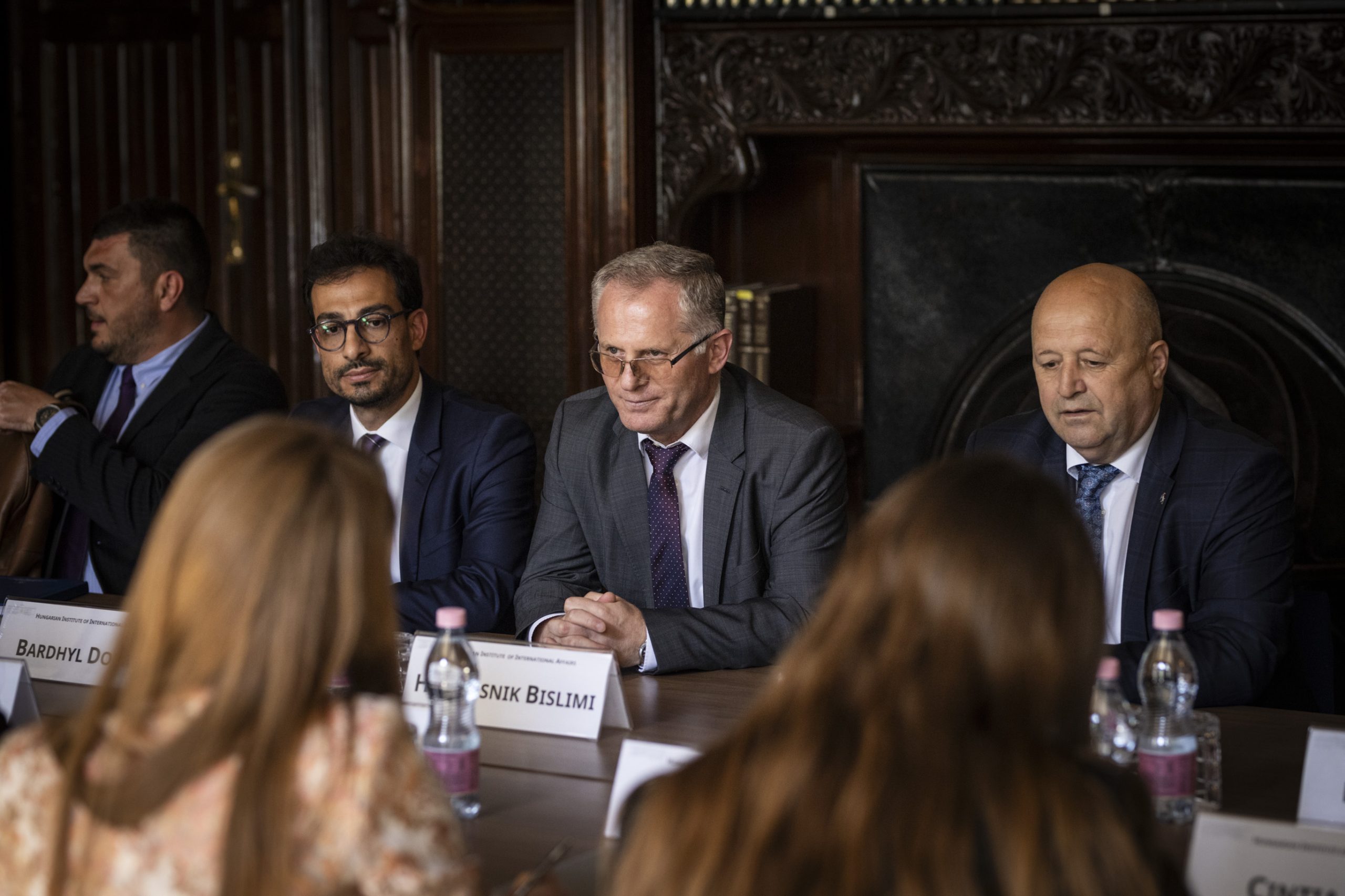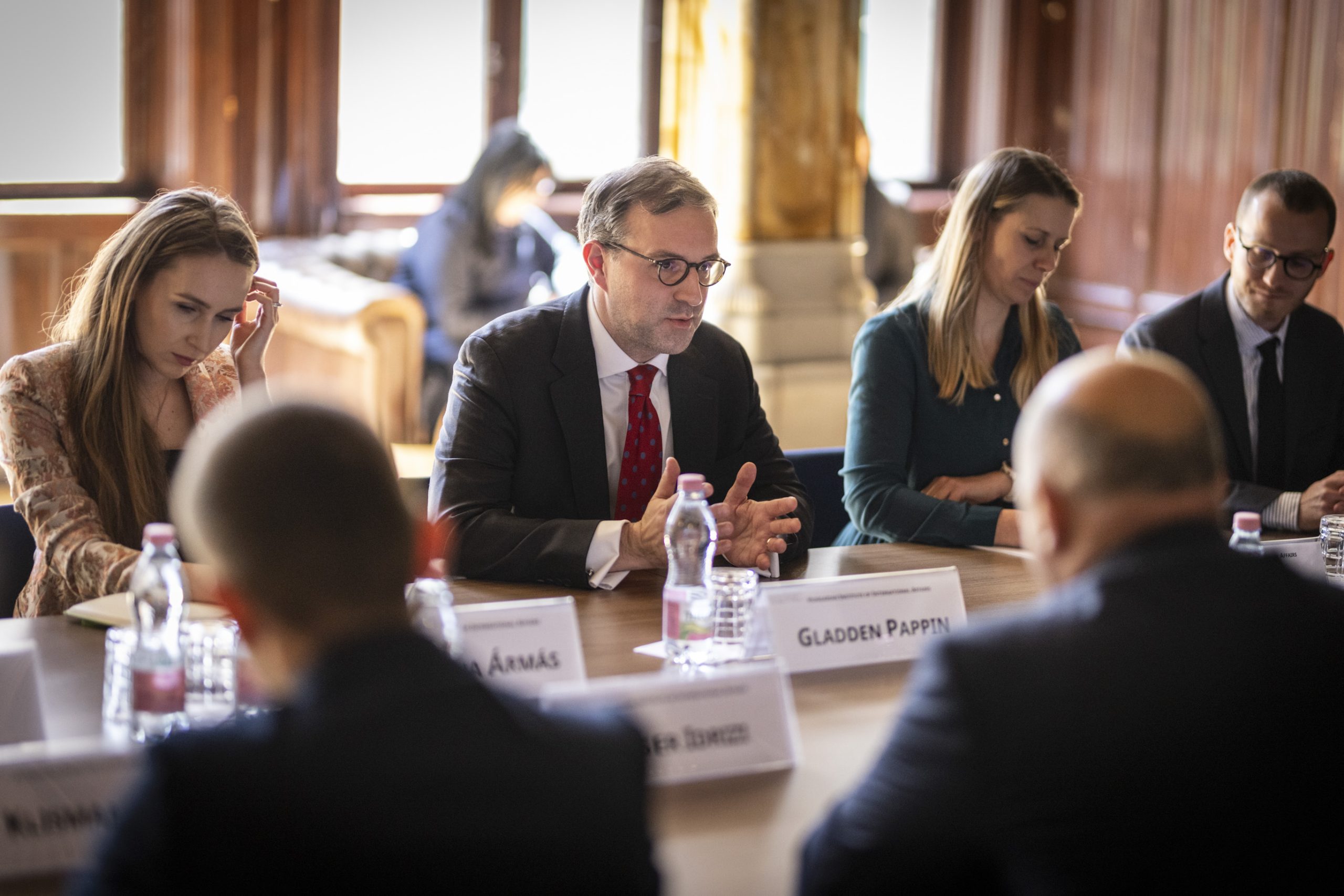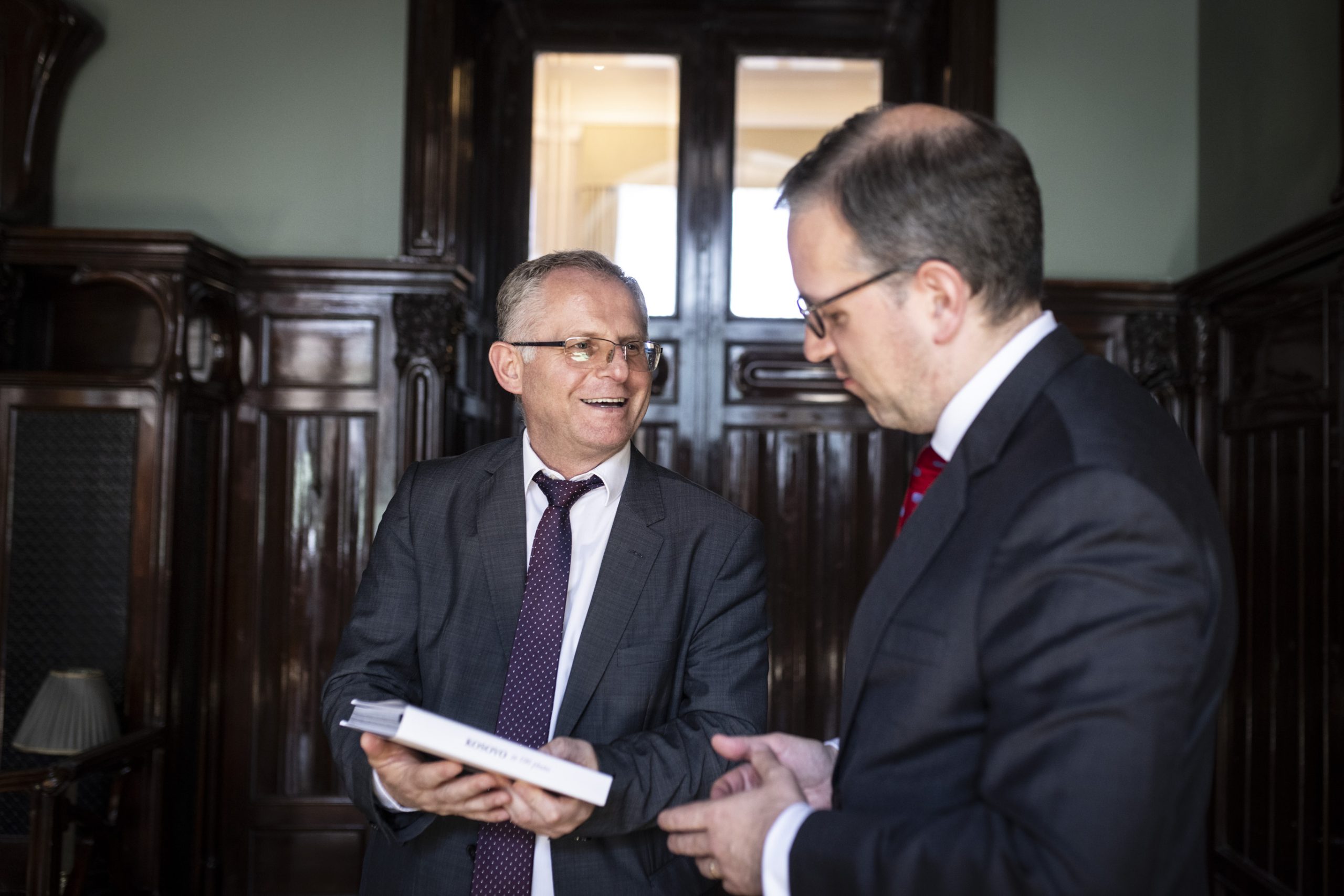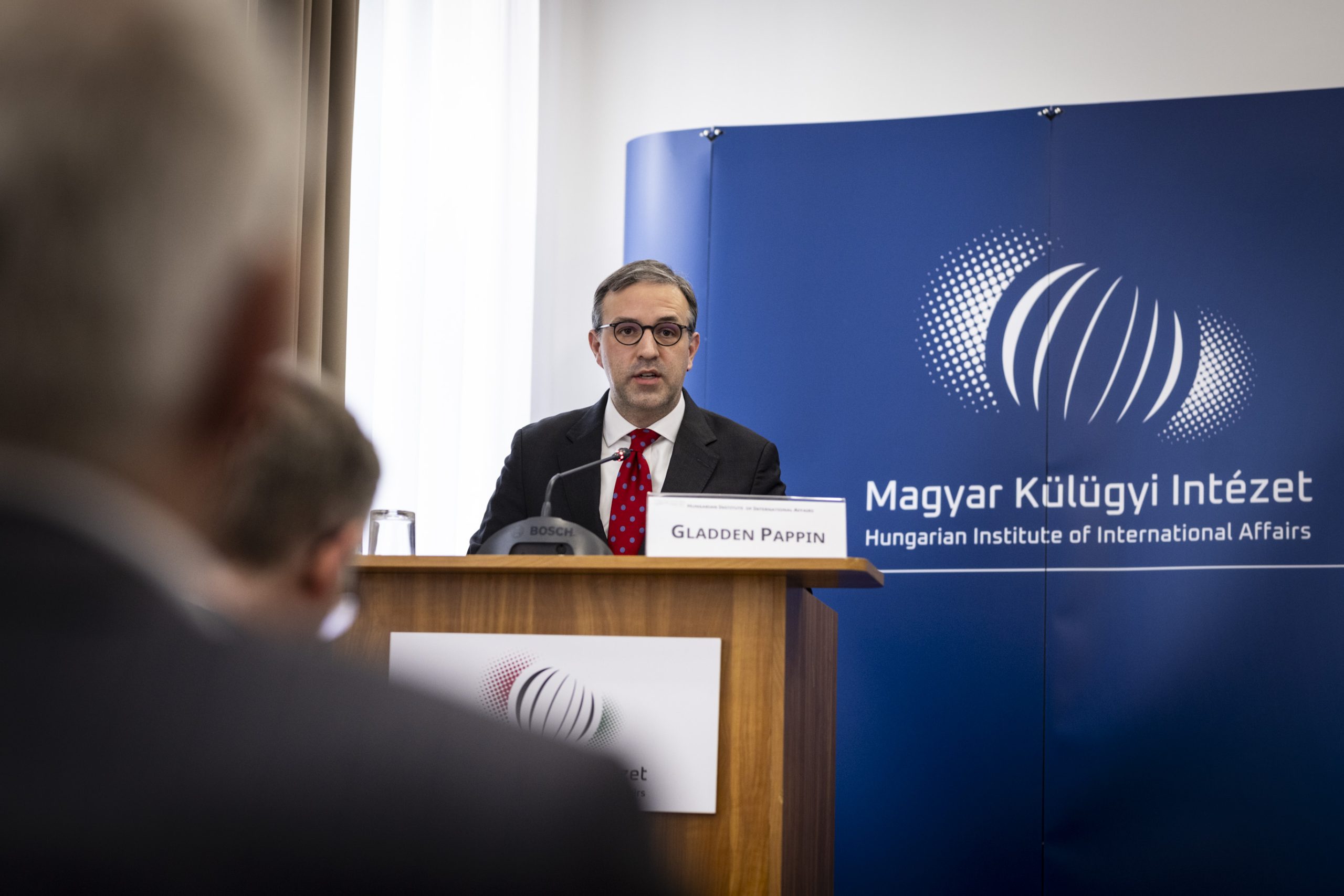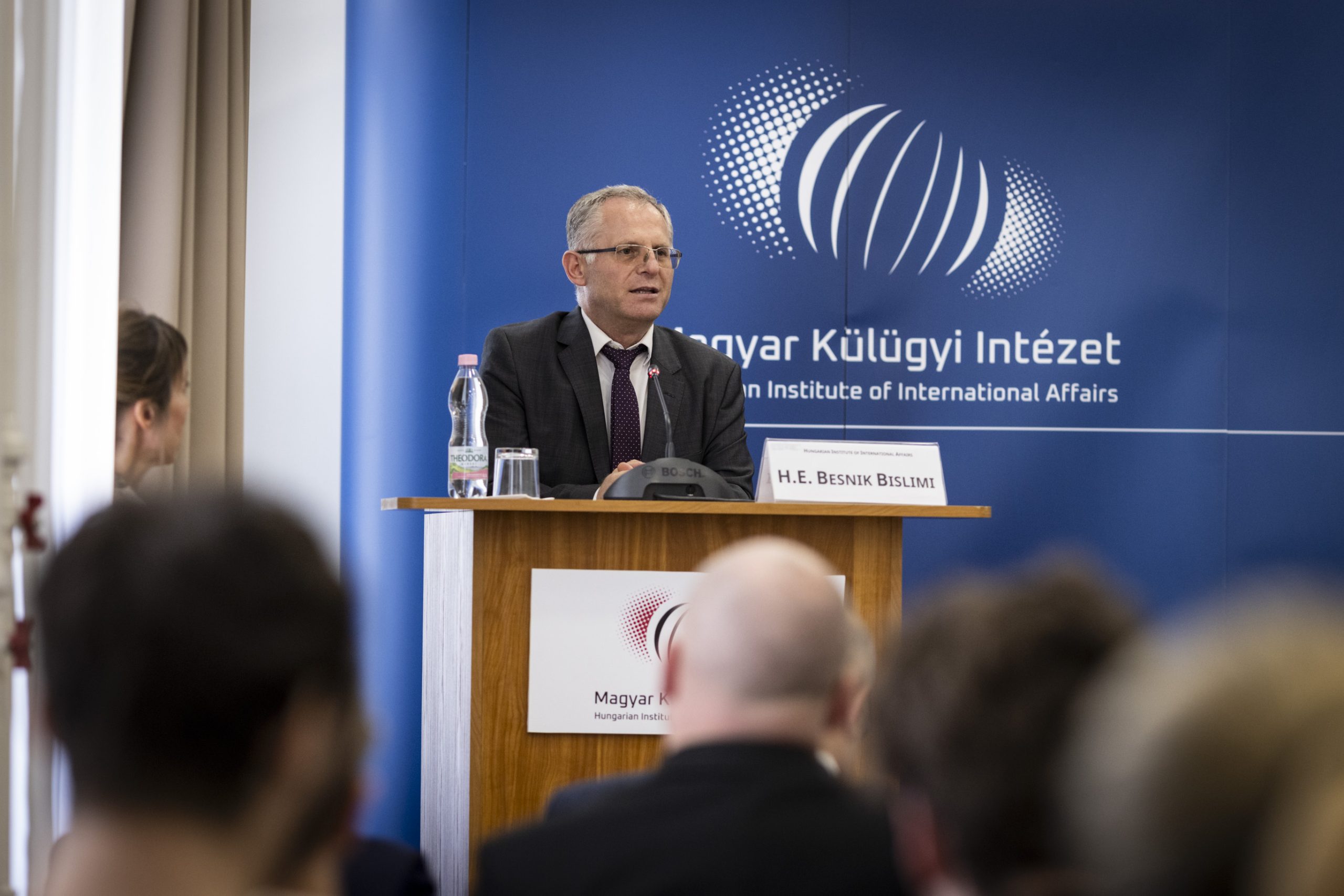Kosovo and its European Integration Journey
On 13 May 2024, the Hungarian Institute of International Affairs (HIIA) hosted a high-level public entitled “Kosovo and its European Integration Journey” featuring H.E. Besnik Bislimi, First Deputy Prime Minister for European Integration, Development and Dialogue of Kosovo. The event was opened by Gladden Pappin, President of HIIA, and moderated by Ferenc Németh, Research Fellow of HIIA.
In his opening remarks, Mr. Pappin highlighted that the geographical proximity of the Western Balkans and its historical interconnection with Hungary make the region particularly important for our foreign policy. The stability and security of the region are priorities for the country, and Hungary is also interested in the continuation of the Belgrade-Pristina Dialogue. Moreover, the enlargement of the Western Balkans will be a priority of the Hungarian EU Presidency.
In his opening statement, the First Deputy Prime Minister provided an extensive overview of the geographical and demographic characteristics of Kosovo. H.E. Bislimi underscored that the government’s primary objective is to facilitate job creation despite numerous macroeconomic challenges. Since the current government came to power, the unemployment rate has decreased by over 15%, and the export of services has contributed to a slight improvement in the external balance. Additionally, they have managed to keep inflation below the EU average. These achievements have given the government greater financial flexibility, potentially leading to further economic reforms. Regarding social reforms, maternity leave has been extended, education at all levels is now free, and efforts are being made to include marginalized groups and minorities.
Talking about Kosovo’s Euro-Atlantic integration, H.E. Bislimi emphasized that the country is determined to join the Council of Europe and the EU. In his view, Kosovo has fulfilled the tasks required for its Council of Europe membership and is acting in accordance with all merit-based assessments.
During the moderated discussion, topics related to Kosovo’s European integration path, including the Belgrade-Pristina Dialogue, the Association of Serb-majority Municipalities, the impacts of the war in Ukraine, and expectations towards Hungary’s EU Presidency were discussed.
The First Deputy Prime Minister underlined that the war in Ukraine had caused serious monetary tensions in the Western Balkans and that Moscow poses a serious threat to the internal affairs of all countries in the region. Speaking about the Belgrade-Pristina Dialogue, H.E. Bislimi argued that at the beginning of the negotiations, a transactional concept was developed with Serbia, according to which Kosovo would fulfil certain conditions, and Serbia would gradually recognize and legitimize the existence of the state. Despite many of the conditions being met, Serbia is not prepared to make any concessions, and the lack of cooperation from Serbia’s side is a stumbling block in the negotiations. The First Deputy Prime Minister believes that small European countries, like Hungary, can build consensus and expressed his expectations toward achieving this goal during Hungary’s upcoming EU Presidency.

